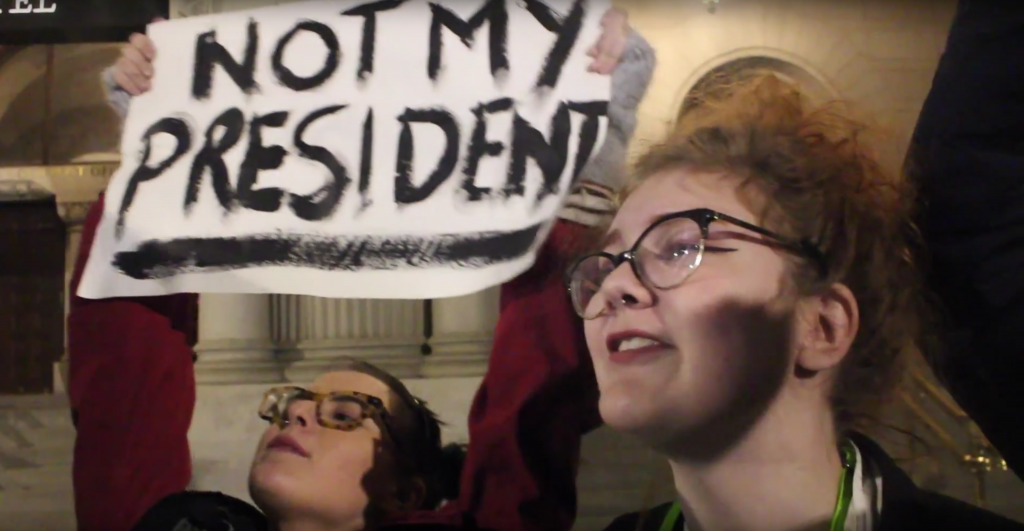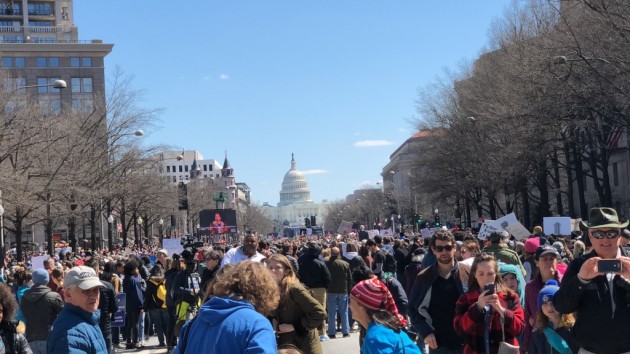Truth Be Told

President Trump is threatening to pull out of the agreement former President Obama and learders from more than two dozen nation's signed to force Iran to stop building nuclear weapons. Iran says if he does it may again begin developing a nuclear bomb. Courtessy photo YouTube
WASHINGTON — President Donald Trump is threatening to pull the United States out of the historic deal that it and more than two dozen other countries negotiated under former President Barack Obama to halt Iran’s efforts to build nuclear weapons. Speaking to the United Nations this week, Trump called the agreement “an embarrassment” to the United States.
Trump could choose to nullify the Iran nuclear deal before a key deadline next month. The other nations involved have urged Trump not to scrap the deal. Iran has indicated that if he does, it may return to efforts to develop a nuclear bomb.
Iran has not violated by the agreement, according members of the Trump and Obama administration who have inspected the country’s nuclear sites.
The Iran Nuclear Deal allows Iran to proceed with nuclear developments for peaceful purposes but stops and rollbacks its ability to use nuclear power for military purposes.
Initially, the United Nations placed numerous sanctions on Iran to force it to halt its nuclear ambitions. It froze Iran’s financial assets worldwide, placed travel bans some of its residents, and halted trade on certain products.

Leaders from the U.S., European Union, China and Russia in 2015 to announce agree-
ment to halt Iran's production of a nuclear weapon. Courtesy U.S. State Department
The United Nations has agreed to reduce and ultimately eliminate those sanctions if Iran complies with the deal. The other countries included in the nuclear agreement are Russia, China, the United Kingdom, Germany and more than 20 other countries in the European Union.
How Does the Iran Nuclear Deal Work?
Limit Uranium Enrichment Capacity
Iran will reduce its gas centrifuges by more than two-thirds to 6,104, leaving just over 5,000 of enriching uranium.
Enrichment Plant:
This facility would only be used for non-military research. Two-thirds of its centrifuges would be removed. Iran could not use the others to enrich uranium. No fissile material, material used to make nuclear weapons, would be allowed at the site. These restrictions would apply for 15 years.
The Enriched Uranium Stockpile:
Iran would reduce its stockpile of LEU (low enriched uranium) to 96%.
Research and Development:
Iran would have limits on the research and development it could do on advanced centrifuges, so that it could not suddenly upgrade its enrichment capacity after the first 10 years of the agreement. Iran would be able to test experimental new centrifuges on a small scale according to a gradual plan.
The Arak Facility:
Iran would disable the reactor core at this facility. The reactor would be redesigned so that it produces much less plutonium, if any, and all its spent fuel would be shipped out of the country. Iran would refrain from building a reprocessing plant – or even doing research on reprocessing – indefinitely, and would not build any new heavy water plants for 15 years.
Inspections
:Inspectors from the International Atomic Energy Agency (IAEA) would have full access to all Iran’s declared nuclear sites. Inspectors would be able to randomly visit sites where they think nuclear work might be going on. A commission made up of a range of IAEA members would be set up to judge whether the inspectors’ access requests are justified.
Investigation into Past Activity:
Iran would provide access to facilities and people suspected of involvement in past experimental work on mostly before 2004. The IAEA would have to certify Iranian cooperation with the inquiry before Iran benefits from sanctions relief.
Sanctions Relief:
As Iran implements the agreement, The United States and the European Union would begin to lift financial and economic sanctions. The EU would stop its oil embargo and end its banking sanctions. Iran would be allowed to participate in the Swift electronic banking system, a vital part of international finance. The United States would issue presidential waivers suspending the operation of American trade and financial sanctions.
Click here to see former President Barack Obama’s explanation of the Iran nuclear deal.
Click here to see President Trump’s United Nation’s Address
TruthBeTold.news is a non-profit, non-partisan website and digital network run by Howard University’s Department of Media, Journalism and Film in the School of Communications. It uses journalistic skills and crowdsourced information to examine claims about the black community in public debate. It also serves as an environment for students to learn advanced reporting tools in a way that is engaging and allows them to use their social media skills.






